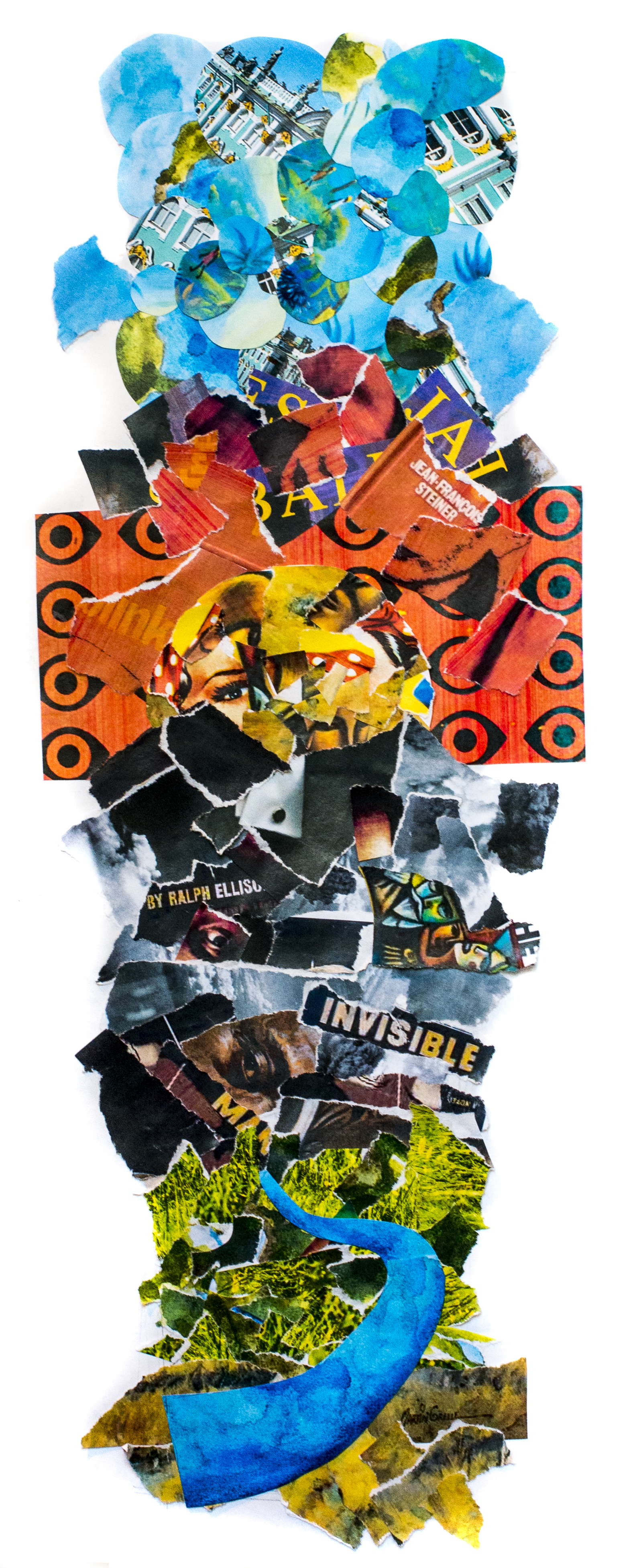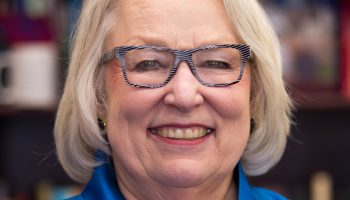This is my fourth summer covering the Chautauqua Literary and Scientific Circle for The Chautauquan Daily. Each summer I’ve been here, I’ve asked all the authors I talk to over the course of the season a question about reading.
What book would they bring to a desert island? What book changed their life? What book should be required reading for everyone?
This year’s question prompted some interesting exclamations when I first asked it. Here’s a sampling:
“Oh my goodness. That’s a big, challenging question, isn’t it?”
“Golly Gee!”
“Oh, man, that’s a good question.”
“Yeah, I don’t have an answer for that.”
“Ooh, boy. I can see why people are balking. It’s easier to think of a hundred than it is to think of one.”
“I need the ‘Jeopardy’ music.”
The question in question: Which book is essential reading for this moment in history?
Here’s what the authors had to say:
///
ESSENTIAL BOOKS
Invisible Man by Ralph Ellison
The Fire Next Time by James Baldwin
selected by
Daniel Bergner, author of Sing for Your Life:
A Story of Race, Music, and Family
“I’m going to have to cheat a little and pick two: Invisible Man by Ralph Ellison, and then The Fire Next Time by James Baldwin,” Bergner said. “They talk about race in a really artistic way and with a voice that allows for all kinds of introspection and complexity. They’re not polemics; they’re searches for understanding.”
///
ESSENTIAL BOOK
I Am Not Your Negro by James Baldwin
(edited by Raoul Peck)
SELECTED BY
Peter Ho Davies, author of The Fortunes
“I’ll tell you one that springs to mind, one that spoke to me a lot recently that I appreciated is the documentary about (Baldwin) from his piece ‘I Am Not Your Negro,’ ” Davies said.
The documentary, directed by Raoul Peck, pulls from an unpublished manuscript from Baldwin called Remember This House.
“It’s not a perfect choice, and I feel, as a writer, a little ashamed for picking a movie,” Davies said. “But it’s a movie about a writer!”
An edited version of the manuscript, retitled I Am Not Your Negro, was edited by Peck and released in 2017. Davies said what he likes about Peck’s version of the manuscript is that it condenses Baldwin’s work into something “sharper even than a single volume of his work.”
“It’s a lot to put onto contemporary writers who address those sorts of questions,” Davies said. “So perhaps someone of the past, with a full body of work, is going to be a better guide for us than someone with a novel that’s coming out next year.”
///
ESSENTIAL BOOK
Bury the Chains by Adam Hochschild
SELECTED BY
Arlie Russell Hochschild, author of Strangers in Their Own Land: Anger and Mourning on the American Right
“I think we have to look to our best examples of how people came together,” Hochschild said. “And I think, actually, of my husband Adam’s book, Bury the Chains. It’s a book about anti-slave trade activists and Quakers in the 1780s. And it all looked hopeless: How would we ever change slavery? Or the British, who ruled the seas? It looked like an impossible thing. But he shows how over a period of 30 years, this small band of people turned that around.”
///
ESSENTIAL BOOKS
Create Dangerously: The Immigrant Artist at Work by Edwidge Danticat
An Indigenous People’s History of the United States by Roxanne Dunbar-Ortiz
Century of the Wind by Eduardo Galeano
Good Citizens: Creating Enlightened Society
by Thich Nhat Hanh
SELECTED BY
Sandra Cisneros, author of The House on
Mango Street
Cisneros had a few different picks: one for artists (Danticat’s book), two for American citizens (Dunbar-Ortiz and Galeano’s books), and one for “these times”: Thich Nhat Hanh’s work.
“One of the things people ask me as a writer — they ask for advice on their life, like I was a spiritual teacher in ways that I feel other writers don’t often get asked,” Cisneros said. “So I read spiritual books because I feel like I have a responsibility to my audience to guide them. The questions they ask are so enormous. I never feel I’m wise enough, so I’m always trying to improve myself spiritually by reading writers such as Thich Nhat Hanh, the Dalai Lama — anything I can get my hands on and say, ‘Here’s this book. I might not have the answer, but this book can help you.’ ”
///
ESSENTIAL BOOKS
White Over Black: American Attitudes toward the Negro, 1550-1812 by Winthrop D. Jordan
The Fire Next Time by James Baldwin
selected by
Annette Gordon-Reed, author of The Hemingses of Monticello: An American Family
Gordon-Reed’s first choice was Jordan’s book.
“I think we’re in a period where race relations are dicey, and with the appearance of much more open hostility and racism with the alt-right and the conflict over Black Lives Matter, I think that’s a useful book,” said Gordon-Reed, who spoke on the morning platform this summer and whose book, The Hemingses of Monticello: An American Family was a CLSC pick in 2009.
After more deliberation, she offered another choice: Baldwin’s The Fire Next Time.
“It too is a meditation on the state of race relations in the United States,” Gordon-Reed said. “And he talks about history, but it’s more modern and he talks about the crisis in the ’60s, but I think it has relevance today. He’s such a wonderful writer — so brilliant and smart, but also literary. He’s a wonderful stylist.”
///
ESSENTIAL BOOK
Dept. of Speculation by Jenny Offill
selected by
Paul Beatty, author of The Sellout

Beatty laughed at the impossibility of picking a book that would be essential for everyone, so he offered a suggestion that he found affected him recently.
“I recently read a book that was really timely for me,” Beatty said. “I just finished it about a week ago, maybe: Jenny Offill’s Dept. of Speculation. I enjoyed it. But I wouldn’t go so far as to say, ‘Everyone needs to read this,’ but it was a book that was extremely timely for myself. So I’ll say that one.”
///
ESSENTIAL BOOK
The Orwell Reader: Fiction, Essays, and Reportage
by George Orwell
selected by
Richard Russo, author of Everybody’s Fool
“It’s hard to exclude almost anything by George Orwell at this moment in time,” Russo said. “Pick a George Orwell book, whether it’s Down and Out in Paris and London or one of the novels. Or even an essay like ‘Shooting an Elephant.’ It just tells us so much about the use and abuse of power and the fact that we really don’t understand what power is if we think it’s the gun. So it’s not a particular work, but if we should be re-reading something right now — which a lot of people are — I think George Orwell would be right up there.”
///
ESSENTIAL BOOKS
Treblinka by Jean-François Steiner
Leaves of Grass by Walt Whitman
selected by
William Heyen, author of The Candle: Poems of Our 20th Century Holocausts
“Far be it from me to name any particular book that would be crucial for us to read at this moment in history,” Heyen said. “A very great dark book is Jean-François Steiner’s Treblinka, which I’ve read more than once — the war of Holocaust technicians against humanity. And for me the very greatest book of light — with its dark patches also — is Walt Whitman’s Leaves of Grass, that great democratic breakthrough.”
ESSENTIAL BOOKS
Give Us the Ballot: The Modern Struggle for Voting Rights
by Ari Berman
A People’s History of the United States by Howard Zinn
SELECTED BY
Susan Southard, author of Nagasaki: Life After Nuclear War
Southard said it’s a hard question to answer because there are so many choices, but Zinn and Berman’s books speak to a lot of contemporary issues. She said anything by James Baldwin is particularly relevant right now, too.
“For Howard Zinn, it’s continuing our understanding of our history from the perspective of those who built it from the ground up and experienced the impacts of the oppressions that are still — I think — very much denied,” Southard said. “For Ari Berman, voting is one of the most primary ways that we can express our political voices. And that right is being diminished and curtailed on many fronts. And Ari Berman’s book is brilliant in uncovering a lot of ways that our voting rights are eliminated or at risk. Some people’s rights have been eliminated. And it’s so critical to our health and well-being as a nation for everyone to have the complete and total equal right of the vote.”
///
ESSENTIAL BOOK
Hiroshima by John Hersey
SELECTED BY
Dan Barry, author of The Boys in the Bunkhouse: Servitude
and Salvation in the Heartland
Barry took into consideration the escalated tensions between President Donald Trump and North Korean leader Kim Jong Un.
“Let’s say for this week, in August 2017, it might be John Hersey’s Hiroshima,” Barry said. “It’s almost a novella-length book, but it is extraordinary and sobering. And when the conversation among world leaders goes the way it’s been going this week, there’s a call for a huge timeout to recall exactly what the consequences of that are. And whatever they were in Hiroshima, they would be worse now.”
///
ESSENTIAL BOOK
White Rage: The Unspoken Truth of Our Racial Divide
by Carol Anderson
SELECTED BY
Ann Patchett, author of Commonwealth
“I’m just going to say the book that comes into my mind — because it’s new, and I just read it, and I loved it, and I like to promote books that are new: White Rage by Carol Anderson,” Patchett said. “It’s a nonfiction book that draws a line between slavery and Trayvon Martin. It talks about how the system has been stacked against African-American progress since slavery. And it’s a legal and social system that has made it very difficult to succeed and thrive. It’s just a book that raised a lot of awareness of how a government system can hobble an entire group of people. So there you go, that’s what I’ll give you.”
///
ESSENTIAL BOOK
Nicholas and Alexandra: The Classic Account of the Fall of the Romanov Dynasty by Robert K. Massie
SELECTED BY
Jane Hamilton, author of The Excellent Lombards
“That was the book as a high school student that rocked my world,” Hamilton said. “And I read it recently, wondering if it would hold up, and it does. It has the pleasures of a novel, but how it relates to today is that there’s so much palace intrigue. The rulers are isolated from their people, and there’s an evil man running the show. And then tragedy ensues.”




